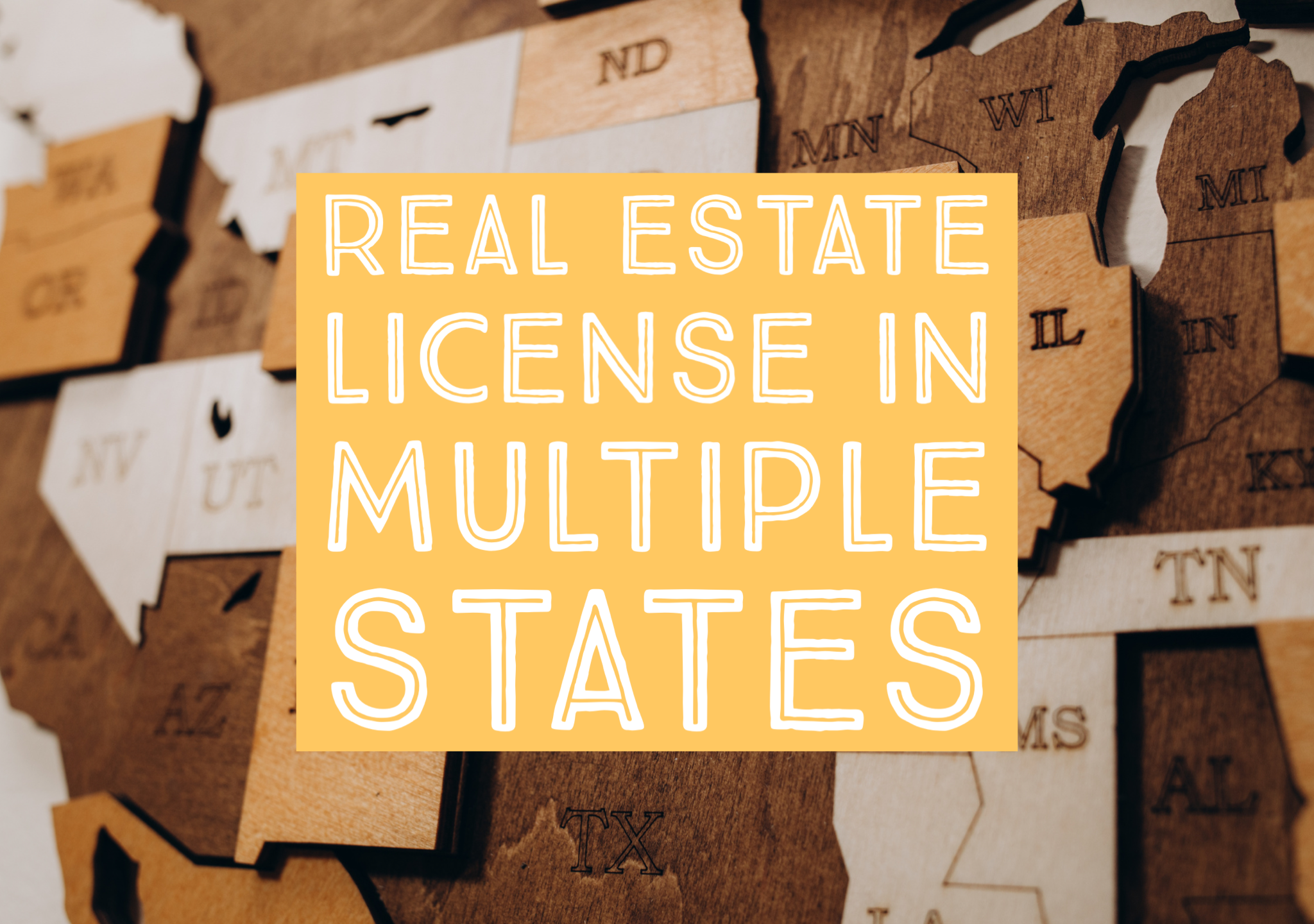There are quite a few motivating factors that could spark the desire to broaden your professional horizons by extending your real estate business’s reach into neighboring states or even across the country. The prospect of tapping into new markets. Accessing diverse clientele, and increasing your overall revenue are just a few of the enticing possibilities that might entice you to consider such a bold move. However, the challenges and potential roadblocks associated with navigating diverse legal landscapes. Adapting to different regulatory environments, and overcoming the apprehensions tied to venturing into uncharted territories can transform this endeavor into a rather formidable undertaking. Fear not! To bolster your aspirations and facilitate your journey into the realm of multistate real estate licensing. We have meticulously compiled comprehensive guidance and shed light on the intricacies involved in obtaining a real estate license across multiple states. Paving the way for a smooth and successful expansion of your business.
The first step in obtaining a real estate license across multiple states is to determine which states you want to work in. This may seem like an obvious point, but it’s important to note that not all states have reciprocity agreements with each other. In other words, if you hold a license in one state and want to work in another. There may be additional requirements that must be met before your application can be approved.
Portability
Let us first discuss the states which, interestingly enough, do not require you to get a real estate license. Tied into this is the concept of ‘portability.’ Meaning the extent to which your current license will allow you to be acknowledged as a proper real estate agent and work in the state freely. You will find portability particularly useful when working with or for a client not from your state or looking to move somewhere. However, know that portability will not allow you to set up your own business anywhere in the other state.
Physical location state
This is an interesting one. The state technically acknowledges your status as a independent contractor. However, you are not allowed to go into the state yourself and do business. Instead, you would have to deal with the impact of remote work on real estate. Something we have all grown uncomfortably used to with the effects of the pandemic still being so prevalent. This, in practical terms, means you can send your client to viewings. You can negotiate on their behalf and even submit offers. So long as you, yourself, are not in the state or meeting with people in it.
Cooperative state
Cooperative states, on the other hand, are the peak of convenience for any real estate agent. They do not require you to get a real estate license in multiple states to do your business. Instead, so long as you have a co–brokerage agreement with a licensee of that particular state, you are free to conduct your business as you would have at home. You will have access to all physical aspects of a real estate sale. Access to properties. The right to bring your client on a tour of the property. Meeting with and negotiating in person. You will be able to relax and do your job.
Turf state
Finally, we have the so-called ‘turf states.’ Unfortunately, these do not allow real estate agents that do not hold a local license any rights to work at all. It means that, in these states, you would be forced to knuckle down and get a local license. There are currently six turf states in the U.S.: Kentucky, Missouri, Nebraska, New Jersey, Pennsylvania, and Utah.
Reciprocity
Now we are getting to the part of obtaining an actual license! This is likely what you will be aiming for if you are planning to move your business or do regular work in other states. Just remember there are people to notify when moving your business. It is critical to let everyone know in a timely manner and help them adjust to your future absence! When the time to get a real estate license in multiple states comes, the good news is that you will not be learning from scratch. Admittedly, laws in most states have at least some differences. So you will want to take the time to look into them! However, there are ways to expedite getting your hands on a license. Without going through all the many procedures complete beginners would have to endure, that is.
Full Reciprocity is Misleading
The term ‘full reciprocity’ is somewhat misleading. Yes, the states which feature full reciprocity will allow you to transfer your license relatively easily. However, before you set off to find the right office location, there is one wrinkle you will likely need to straighten out. And that is the state-specific portion of the real estate exam. Thankfully, this does mean you will not need to bother with any other exams or licensing issues. And it is, of course, only wise to insist real estate agents get acquainted with the laws and regulations unique to the state before working in the field. The full license reciprocity states are: Alabama, Kansas, Virginia, Colorado, Mississippi, Alaska, Washington, Missouri, Georgia, Delaware, Kentucky, and Maine.
Partial reciprocity
Partial reciprocity is the middle ground between doing everything from scratch and getting by with just one exam. Your previous status and education will be acknowledged. However, you will still need to go through a limited additional education before being allowed to take further exams that will confirm the legitimacy of your practice. Again, though, your experience and former legitimacy will significantly help with the process. Florida does not require you to take the entire state exam, just a 40-question test regarding Florida real estate law. You might be able to qualify for the reciprocity, or you might be denied even though the state has partial reciprocity agreements with states other than yours.
Florida offers real estate reciprocity, known as “mutual recognition agreements’ with eight states: Alabama, Arkansas, Connecticut, Georgia, Illinois, Mississippi, Nebraska and Rhode Island. Sorry New York, regardless of your position in the real estate realm, you need to start as a Real Sales Associate, however we have experienced that if you request an educational waiver from New York State Division of Licensing and complete the 2 hour course Developing Cultural Competence in New York, they have made exceptions. We recommend you connect with John Manfred, the President of Manfred Real Estate Learning Center, who has help hundred’s of people obtain their Brokers license in New York and is very well verse on real estate licensing in New York.
No reciprocity
Finally, we have the worst-case scenario. States that support no types of reciprocity at all. In such a case, you would have to bear all the costs to consider when starting a career in real estate from scratch. The classes, the exams, the licensing. All of it. In other words, this will make your attempt to get a real estate license in multiple states a lot harder than it otherwise would have been. The states that do not offer license reciprocity include Arizona, Vermont, California, Texas, Indiana, Wyoming, Hawaii, South Dakota, Montana, Michigan, New Jersey, and Kentucky.
Reminder and advice
This marks the end of our answer to how to get a real estate license in multiple states. We hope you now have a better grasp of the task ahead of you. Just remember: before settling on a state to expand into, take a close and careful look at the reciprocity and portability policies they subscribe to. Every state has some combination of the two. And, interestingly, you can run into states that allow realtors to work freely in them while allowing no reciprocity. Finally, if you are looking into this for just a single client or a recent uptick in the interest of your clients in a particular state, there are other options. You can form a partnership with a real estate licensee there. And recommend each other to clients in your respective states. Whatever you decide to settle on, we wish you luck in your endeavors!
Related Blog Posts
Join Over 100,000 Students Enjoying Manfred School Now
Become Part of Manfred School to Further Your Career.





